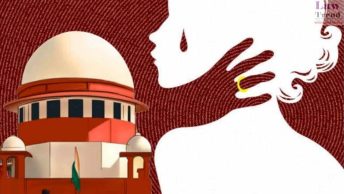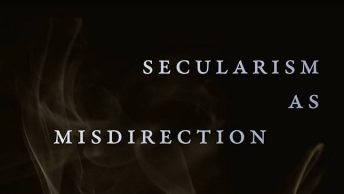The Outlook magazine must be commended for doing a cover story on racism at home, even as Indians cannot stop protesting against the racism they face elsewhere. It follows this recent report in the Telegraph about the racist abuse faced by a Ugandan student in Kolkata. It is echoed by the experiences of a gay black American in Delhi, whose travels in India with his white partner (and the differential treatment they received) only accentuated his awareness of his race. Another story in Outlook talks about NRI families and their complex relationship with race. The issue also covers racism faced by Indians in India: those from the North-Eastern states and those born with a darker skin.
I have discussed discrimination against Muslims in the past, also also measures proposed to combat it. Outlook has done a good job of holding up a mirror to our society. These stories tell us that it is not just caste, sex and religious discrimination that India needs to worry about. Racism is alive and kicking. So is homophobia. Disability, language, marital status and many other labels also invite prejudices, stereotypes and hostility.
Update: The Chief Minister of Mizoram has spoken about the racism he has faced in India. Although, a day later came the denial. NDTV’s coverage of the issue (and the wider context of racism in India) is here. In the video, Mani Shankar Aiyer denies racism within the country. Ravi Shankar Prasad puts it to ignorance, but insists that Indians are not racists. Malena account of being black in India was brished aside as her personal experience by Prasad. It was amazing how defensive some of the responses were, lauding India’s ‘unity-in-diversity’, its history of tolerance, its composite culture, its official role against aparthied. Yes, these achievements (even a sceptic will find ‘some’ truth in these claims) are laudatory, but do they require us to deny experiences of people who suffer racism in our country? How can we deal with the issue if we continue to deny it exists?






Another widely reported incident was during the IPL matches. Though it was officially denied, I find the allegation quite believable.
The author of this Outlook article, Diepiriye Kuku, has posted Youtube videos documenting his experiences in India including some showing the public gawk at him.
This is hardly the first time that such articles have appeared in the Indian press. Manushi, issue 157, has an article by John Patrick Ogwando detailing his experiences of racism in India. You can access the article at
http://www.manushi-india.org/issues/issue_cover157.htm
Sporadically, I've seen articles in various Indian newspapers on the often bitter experiences of Africans, mainly students, in India. But we (the "elite") simply don't take them seriously enough. Or rather, we take them seriously only when we want to proclaim our own "superiority" vis-a-vis other (presumably racist) Indians.
The time is long past for articles which aim to "inform" the Indian reader about our own racism. Most of us (again, I mean the English-speaking elite) know it. The time is now due for us to address the problem. The fear that I have is two-fold: (i) We will not do it until the international exposure becomes embarrassing enough for us to have to address it, and (ii) When we do address it, we will do it in the most trivial way. That is, we will enact a "law" and proclaim that we have "tackled" the problem. That's exactly the way in which we've tackled, for instance, untouchability and child labour. On the latter, see the following article in the Washington Post about how the child labour law has more-or-less been ignored:
http://tinyurl.com/ll2x2c
Finally, about gawking and worse, well, white women who've traveled to India know this all too well. I've had the embarrassing experience of having to listen at a dinner to an American white woman relate how she was ogled and groped all the time in India.
Just to add insult to injury, The Hindu can't even be bothered to get Mr. Lalthanhawla's name correct in its report. It splits his name into two parts – Lal Thanhawla – and proceeds to refer to him as "Mr. Thanhawla"! See
http://www.hindu.com/2009/06/26/stories/2009062657510100.htm
I hope they correct this mistake soon.
Asking someone whether they are from India is not necessarily racist. It might be a honest mistake, though understandably irritating for the person who's asked this question again and again.
What is undoubtedly racist are the derogatory terms used to refer to people from the North-east — "Chinkies" etc. Even more disgusting is the harassment that they are subjected to in places like Delhi, especially North-east women.
It is unfortunate that our school system — even the so-called privileged schools — makes no effort to communicate the true diversity of our country. I studied in one such school and I can testify that whatever I do know about the North-east has been culled from the occasional reports in our press and my own private reading. But yes, as someone "lucky" enough to study in one of the privileged schools, I did end up (without even trying) with a good knowledge of what's current in European/American "popular culture."
Thanks Suresh for posting Ogwando's article. It was very insightful, and of course it in many ways validates my truly mixed sentiments about living in India. it's easy to feel that social ills are personal problems when there is little open acknowledgment. Without portraying India as the only society with racism, gender-discrimination and classism, it is nonetheless essential that we engage in open and honest dialogue between our peoples, and as individuals. The inter-cultural mishaps in communication that Ogwando alluded to are very real and often lead to divisions rather than mutuality, compassion and understanding.
I'd love to hear more stories about Afro-Indian love between individuals and communities. Resolving issues of social division is the most sincere way towards building a more just future for all involved. Also, where national borders matter less and less, knowing how to deal with difference, and even an appreciation of difference IS the skill for the modern world.